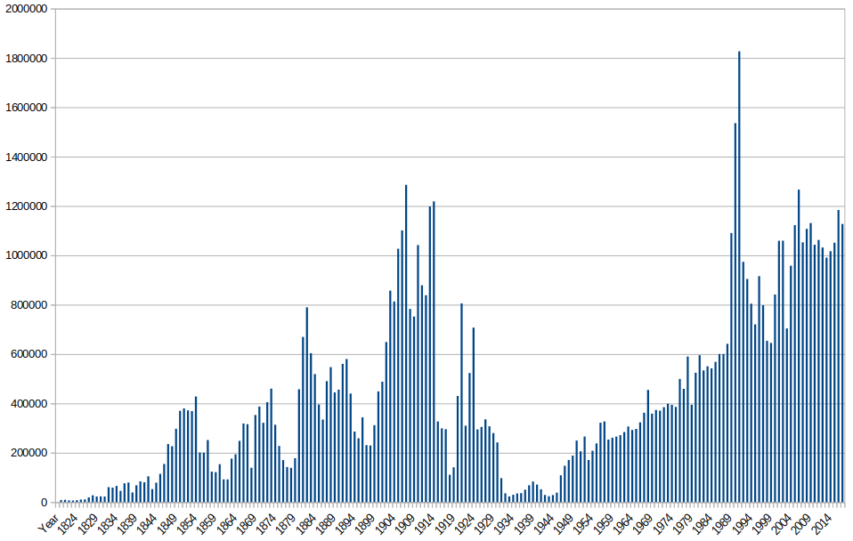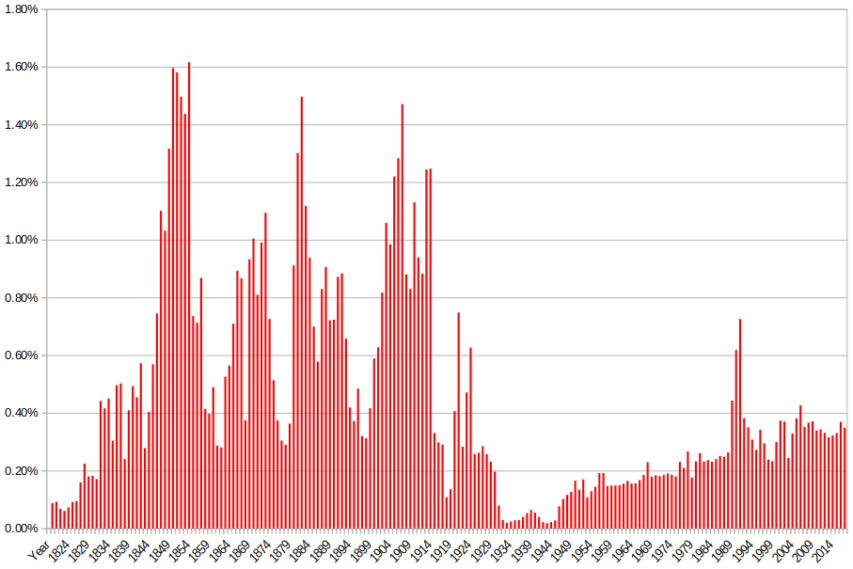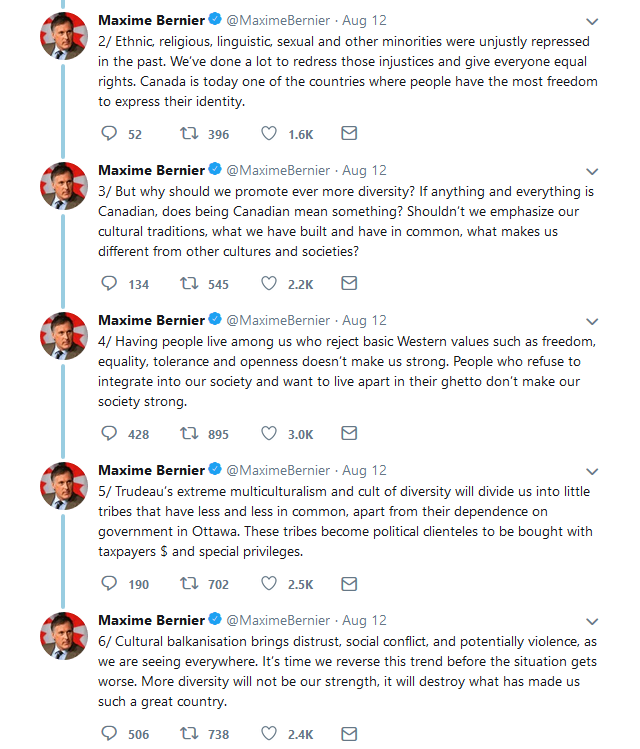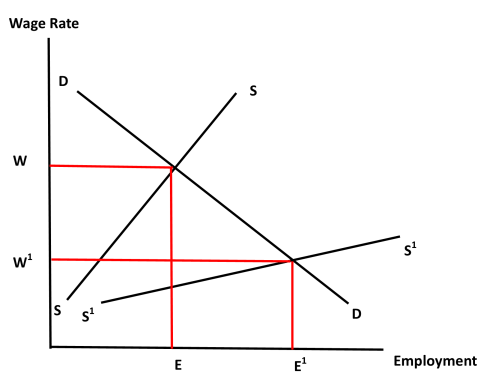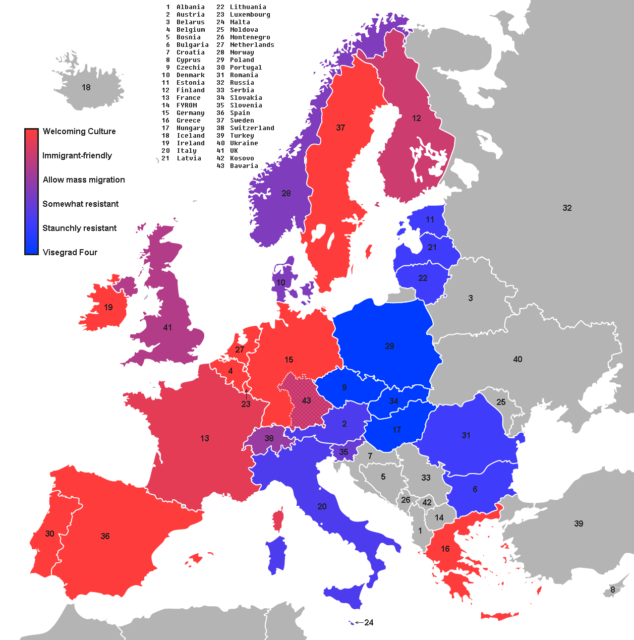Nurses, doctors, engineers, scientists, computer programmers – our society is very advanced and a big chunk of our economic strength is based on advanced services that need skilled people like these. And there aren’t enough native Brits skilled in these areas – our demand outpaces our supply of people. We need lots of computer programmers and only relatively few native Brits are qualifying in computer sciences. And the shortage of young Brits taking STEM subjects is worsening.
So far so good – we need a supply of skilled migrants for the foreseeable future. Hopefully we can all agree on that.
Do we need unskilled migrants?
Because when people with no skills come to the UK, we suffer and so do they. They are either forced into crime, fall into modern slavery, or find themselves exploited working on the black market.
When they are forced into crime, we see more stabbings and rapes and burglaries and murders.
When they fall into modern slavery we see more people-trafficking, more forced prostitution.
When they are exploited, they are forced to work below minimum wage, and the jobs that young British teenagers might have taken are taken by those willing to work for a pittance just to stay alive. When they find themselves working in the black market, they pay no tax and have no protections.
Modern Britain does not need or desire these things – young people enslaved and forced to work for low pay, exploited, or forced into crime. These are profoundly negative developments for our society, and a grotesque abuse of people who were mislead into coming here for what they thought would be a new life.
Modern Britain does not need unskilled migrants, and should not enrich their slavers.
And that brings us to refugees.
Are there genuine refugees? Yes of course.
But we know what refugees look like – men, women and children staggering over the border into the nearest safe nation with the clothes on their backs and often not much else. Poverty-stricken and unable to return to the homelands, they throw themselves on the mercy of their neighbours. Refugees don’t abandon their families in war zones and travel thousands of miles alone. They do not have thousands of dollars to give to slave traders for a seat on their rickety barges.
What we see on the boats are not refugees.
They are mostly young men coming for a better life. And while we cannot begrudge them those intentions, we have already discussed why unskilled migrants cannot be welcomed here in large numbers. And unskilled migrants they mostly are, because skilled migrants come armed with work permits and speak the language. At the very least they have documentation to prove who they are, because being able to prove you are an Iranian heart surgeon is important. Being able to prove you are a penniless and unskilled Eritrean, who doesn’t speak English……………that’s not an identity worth retaining at a border check.
And so the Mediterranean sea floor is littered with their travel documents.
Genuine refuges stagger over the nearest safe border – we must help them if we can.
The unskilled migrants travel here in boats, trafficked by modern-day slavers into the underworlds of our nations. They may have hope in their hearts, but they are bringing misery into a society that cannot absorb them.

